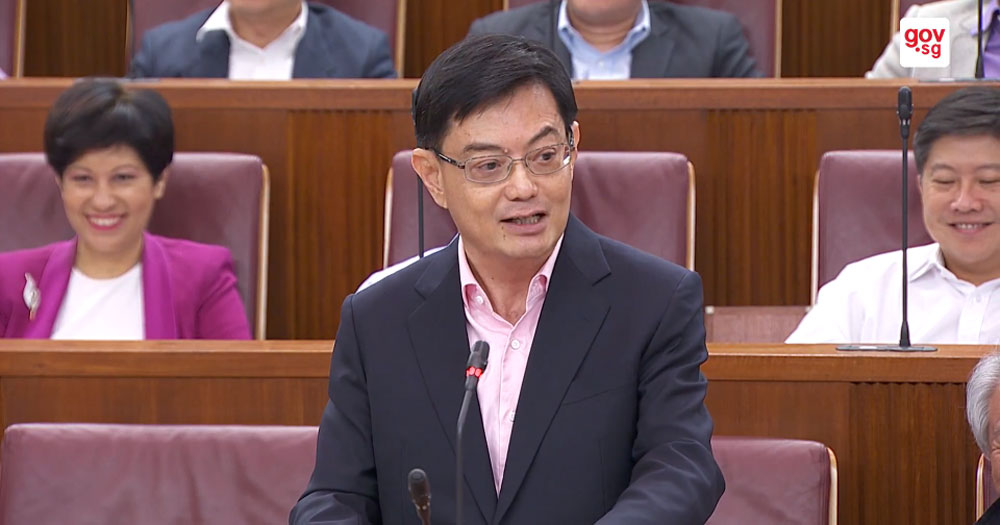Deputy Prime Minister and Finance Minister Heng Swee Keat announced on Mar. 26, 2020, that the government has obtained permission from President Halimah Yacob to draw a historic S$17 billion from past reserves.
The funds will be used as part of a second stimulus package of over S$48 billion to help beleaguered businesses which have been affected by the Covid-19 outbreak.
"The Covid-19 pandemic, and the multiple threats it poses to our nation, is the sort of event that we had accumulated reserves for," Heng said.
"It is a "black swan" event that comes only once every few decades. Our prudence and discipline in saving and growing our reserves give us the wherewithal to respond decisively when our nation faces extraordinary circumstances."
2nd time in S'pore history to draw from reserves
It would be the second time in Singapore's history where the government would draw from the country's reserves.
The first time was during the 2009 financial crisis, where the government withdrew S$4 billion from past reserves to fund two measures to boost the economy: the Jobs Credit scheme and the Special Risk-Sharing Initiative.
The funds were later returned to the reserves in 2011, after the economy picked up.
The Covid-19 pandemic has delivered a critical hit to the economy, which has already been weakened by the U.S.-China trade conflict and the oil price war.
Heng shared that this support package, called the Resilience Budget, will focus on saving jobs and protecting livelihoods, assist enterprises in overcoming immediate challenges, and strengthen the country's economic and social resilience.
S$17B for supporting jobs, self-employed persons, aviation sector
The S$17 billion will be used for four broad measures.
The bulk of the money will be put into saving jobs, with the Enhanced Jobs Support Scheme (JSS), a temporary measure put in place in 2020 to provide cash grants for employers to help them retain workers.
Under the JSS, S$13.753 billion will be used to enhance and extend the scheme and provide additional tiers of support for severely-affected industries, such as retail and F&B.
Another S$1.195 billion will be used to provide income relief for self-employed persons.
A S$350 million rescue package will be given to the aviation sector, which has been heavily crippled by the Covid-19 pandemic.
S$1.701 billion will be used to enhance financing schemes for enterprises to ensure that firms continue to have access to credit.
Governments worldwide scramble to save economy
Governments around the world have pledged to provide emergency aid, after the Covid-19 crisis drove much of the economy to a halt.
The U.S. Senate has approved a historic US$2 trillion (S$2.8 trillion) stimulus deal on Mar. 26, to infuse financial aid to unemployed individuals, small businesses, and major industries such as airlines, according to CNN.
The Australian government also announced a A$17.6 billion (S$15.1 billion) economic plan to keep citizens employed and help out small and medium-sized businesses.
"Covid-19 is a test of our social cohesion and our psychological resilience," Heng said in his speech.
"We must not surrender to this fear or panic. The government will take all the social and economic measures we need to keep our people safe, keep our economy growing, and prepare ourselves for the recovery.
Now, more than ever, we need Singaporeans to be strong, and ride through these challenges together."
Top image via Gov.sg/YouTube
If you like what you read, follow us on Facebook, Instagram, Twitter and Telegram to get the latest updates.
